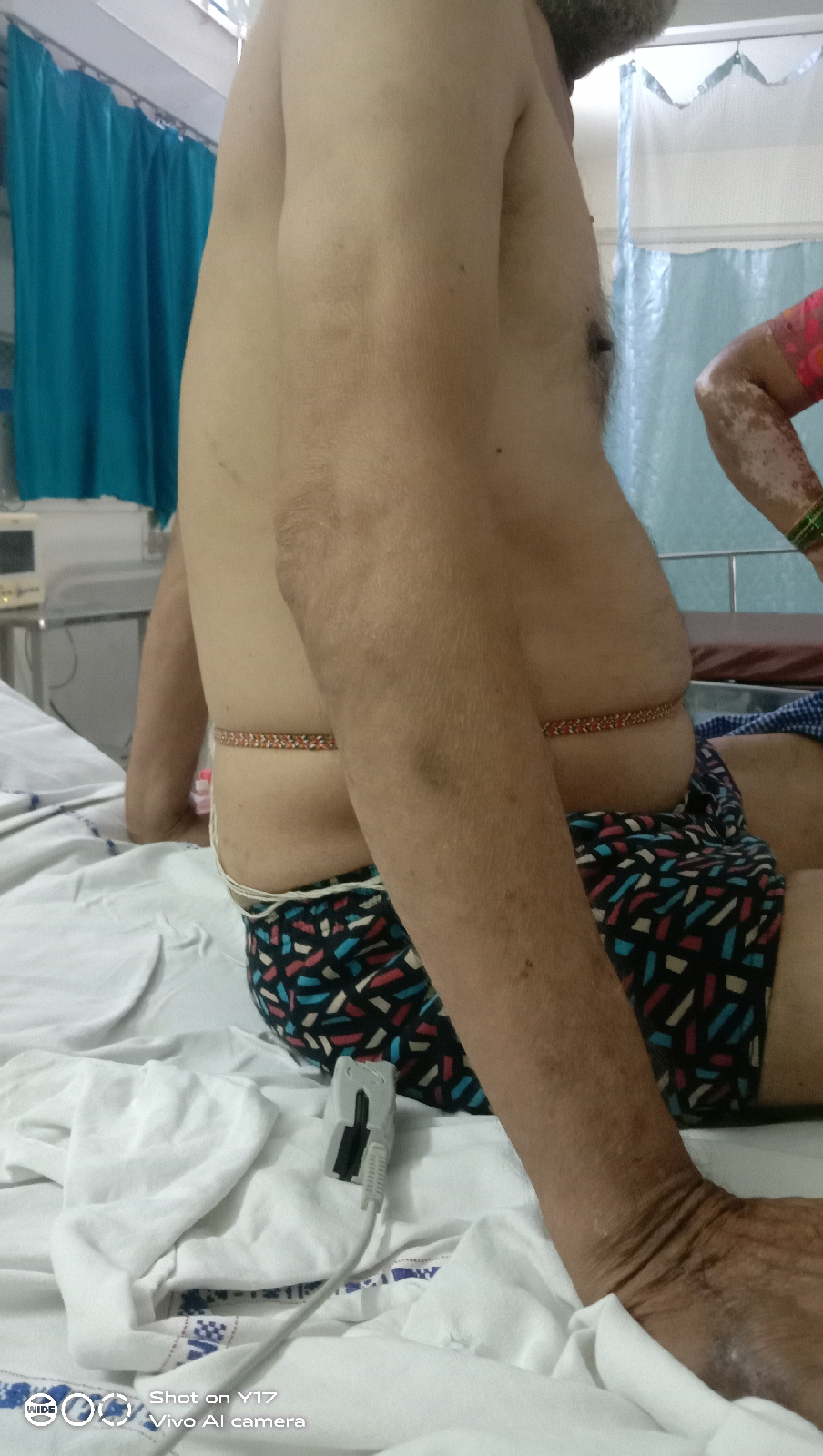GENERAL MEDICINE ASSESSMENT [AUGUST 2021]
Rishitha.Jarpla 3rd sem F batch The following blog is an assignment that was given to us - for evaluation of our skills over the last month
Max Marks: 100 (5 questions in total and 20 marks for each answer)
This is the link of the questions asked regarding the assignment:
https://medicinedepartment.blogspot.com/2021/08/medicine-paper-for-aug-2021-bimonthly.html?m=1
Question 1:(Testing peer review competency in the active reader of this assignment) :
Please go through the long and short cases in the first link shared above and provide your critical appraisal of the captured data in terms of completeness, correctness and ability to provide useful leads to analyze the diagnostic and therapeutic uncertainties around the cases shared.
https://2018-21batchpgy3gmpracticals.blogspot.com/2021/08/18100006003-case-presentations.html?m=1
Please provide your peer review assessment on not only the the student's written case report but also the reading of the cases followed by the question answer session linked above in the video and share your thoughts around each answer by the student along with your qualitative insights into what was good or bad about the answer.
https://youtu.be/953auU42R0k
LONG CASE
COMPLETENESS:
The case log has details of the patient's complaints and history of present illness , past illness , all the investigations are shown with images .
The timeline of symtomatology and Anatomical localization are decsribed well.
History analysis in approching the patients problems is done
Also the localization of the acute problem with which the patient presented and localization of the chronic problem associated withe sever join pains is well described .
The differential diagnosis also done
I appreciate the diagnostic approach given in the blog, it paid attention to all the possibilities, ruled out one by one and arrived to a final diagnosis.
CORRECTNESS:
The data provided is correct.
USEFUL LEADS TO ANALYZE THE DIAGNOSTIC AND THERAPEUTIC UNCERTAINTIES :
Someuseful leads are provided in the blog to analyze the diagnostic and therapeutic uncertainties of the case .
SHORT CASE: 1
COMPLETENESS:
The case is complete with all necessary data but the complete treatment data is not provided and his updates also.
CORRECTNESS:
The data provided is correct
SHORT CASE: 2
COMPLETENESS:
The elog was complete
It included chief complaints , history of presenting illness , history of past illness , medical / surgical history , personal history , family history , social & education history , immunization history.
CORRECTNESS :
The data provided is correct
SHORT CASE:3
COMPLETENESS:
The case is complete with all necessary data
The case log has details of the patient's complaints and history of present illness , past illness , all the investigations are shown with images .
The timeline of symtomatology and Anatomical localization are decsribed well.
CORRECTNESS :
The data provided is correct.
Question 2:Testing scholarship competency of the examinees ( ability to read comprehend, analyze, reflect upon and discuss captured patient centered data):
https://2018-21batchpgy3gmpracticals.blogspot.com/2021/08/18100006003-case-presentations.html?m=1
Please analyze the above linked long and short cases patient data by first preparing a problem list for each patient in order of perceived priority (based on the shared data) and then discuss the diagnostic and therapeutic uncertainty around solving those problems.
LONG CASE:
A 44 year old man is having present problems of
*A 3 day history of bilaterally symmetrical,pitting type pedal edema (extending up to middle of his legs),facial puffiness
*Frothing of urine
*Gradual decreased urine output(past 3 days)
*Severe joint pains -gradually B/L symmetrical
*Burning sensation in eyes, increased tears
*Involuntary weight loss,Loss of apatite
*On clinical examination: BP-140/90 mmHg
Temperature:99.3F
RR- mildly acidotic
On investigations: X ray AP veiw of hands and wrist ..Osteopenia, erosions of mcp and PCP joints noted and soft tissue swelling is noticed
* Chest X ray: Right heart border mildly dialated right atrium
* Oliguria
*Anemia
Treatment:
* Free water restriction (hyponatremia)
*Tab.PREDNISOLONE
P/o 20mg 2 times
*Tab.FEBUXOSTAT p/o 80mg
* Haemodialysis for worsening renal dysfunction
SHORT CASE 1:
TREATMENT: Tab.syndopa plus 125 mg( Levodopa+carbidopa for symptoms of parkinsonism )
Tab. Telma 40mg ( for high BP)
SHORT CASE 2
TREATMENT:
* Antifungals
* AMLORFINE fusidic acid cream , saline compress
* Tab. HIZONE 15mg per day
*Tab.SHELCAL
* Tab.ULTRACET
* TAB.LEVOCITREZINE 5 mg
Question 3
Testing competency in "Evidence based medicine": Include the review of literature around sensitivity and specificity of the diagnostic interventions mentioned and same around efficacy of the therapeutic interventions mentioned for each patient.
https://2018-21batchpgy3gmpracticals.blogspot.com/2021/08/18100006003-case-presentations.html?m=1
LONG CASE
INVESTIGATIONS:
•X-Ray of hands and wrists
•Chest X-Ray - Right heart border showed mildly dilated rt. atrium .
•The Left heart border shows a prominent aortic knuckle .
•ECG done
•Blood tests done
•24 hr Urinary protein : 1500mg
•24 hr Creatinine: 0.8
DIAGNOSIS :
Acute Glomerulonephritis, likely due to Secondary Amyloidosis due to Chronic Poorly Treated Seronegative Erosive Rheumatoid Arthritis.
Dilutional Hyponatremia secondary to Anasarca due to Glomerulonephritis
Hyperuricemia likely due to decreased Uric Acid Excretion Precipitating Gouty Arthritis
Anemia of Chronic Disease secondary to Poorly Treated Rheumatoid Arthritis.
The diagnostic approach is appropriate
Features supporting the diagnosis of glomerulonephritis were mentioned accurately.
SHORT CASE: 1
INVESTIGATIONS:
•ECG- Showed sinus tachycardia , with pseudo infarct pattern in lead I and aVL with dagger q waves in same leads ; also showed LVH .2 D •ECHO: Grade II diastolic dysfunction
DIAGNOSIS :
Idiopathic Parkinson's Disease Stage 1 with denovo HTN.
Multiple System Atrophy - Parkinsonian Type (MSA-P).
The diagnostic approach is appropriate
SHORT CASE 2:
INVESTIGATIONS:
•CUE Albumin - +1
•GRBS - 139mg/dl
•CBP
•TLC
•LFT - TB - 1.03
Albumin - 3.9
•RFT- urea - 22 Serum creatinine - 0.6Electrolytes -NA - 136 , K+ - 4 , Cl- - 98
•ECG - Sinus tachycardia LVH present
•USG- Abdomen
DIAGNOSIS :
IATROGENIC CUSHINGS SYNDROME Secondary to TOPICAL CLOBETASOL APPLICATION all over body for approximately one year.
TINEA CORPORIS
DENOVO HTN
The diagnostic approach is appropriate

Comments
Post a Comment